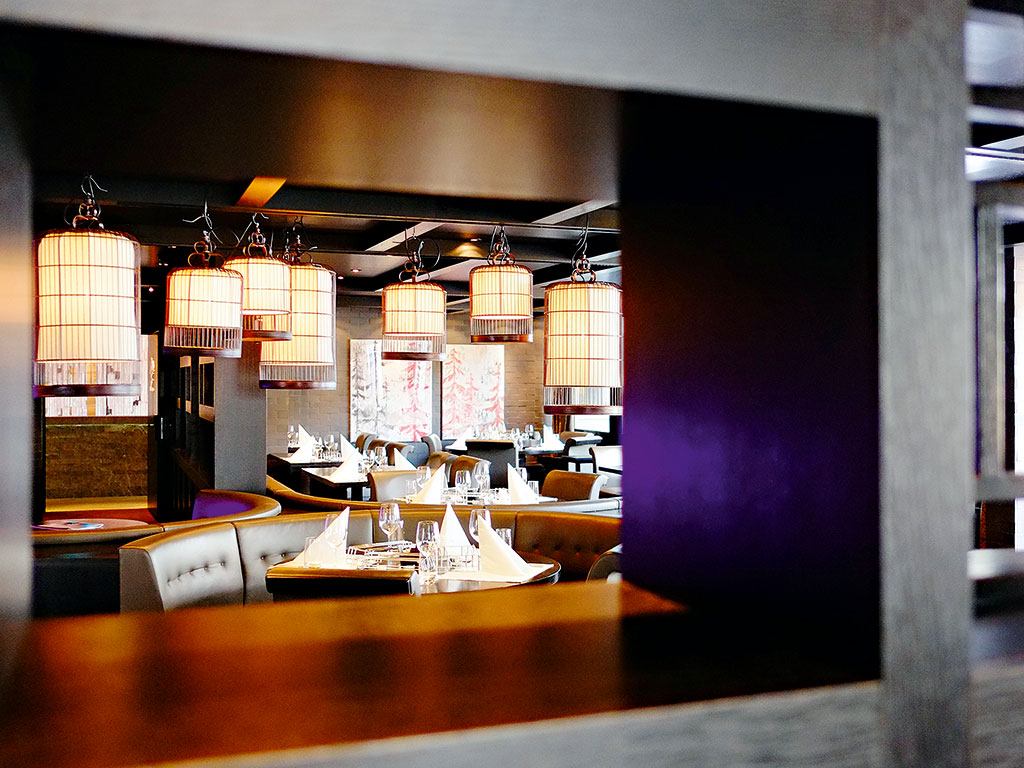Hotel Grischa opens its doors to the Davos elite
With the World Economic Forum fast approaching, the hotel business in Davos is preparing for an influx of international names. Cyrill Ackermann of Hotel Grischa tells us what he and his fellow hoteliers are expecting

A dining room at Hotel Grischa. The establishment has become a popular destination for those attending the World Economic Forum in Davos
With the 2015 World Economic Forum (WEF) upon us, it’s important to acknowledge the part played by local hotels in facilitating an influx of world-renowned individuals to the mile-high resort of Davos. With many of the biggest names in business, politics, academia and the arts congregating in one space, the commercial opportunities for the local hospitality players are without compare. In fact, for some in the hotel business, between 10 and 25 percent of their annual turnover comes from this period, and the marketing of their product to attendees represents a key part of their strategic considerations.
As those at the event look to the prevailing challenges of the times and how they might have a hand in improving the social and financial wellbeing of billions across the globe, those in the hotel business are readying their rooms. The WEF boasts perhaps the most impressive guest list on the annual events calendar, and the buzz generated about the place represents a huge opportunity for hotels in the region.
Nowhere is this better exemplified than at Hotel Grischa, where “the Dutch proprietor family realised a unique concept in Davos after acquiring the two buildings”, according to Cyrill Ackermann, the hotel’s General Manager. “The result is a beautiful hotel that even exceeds the requirements of a luxurious first-class hotel. Guests can enjoy an informal and familiar atmosphere, year-round.”
10-25%
Of a Davos hotel’s annual turnover is from the WEF
Catering to Davos Man
Located in the centre of Davos-Platz, the four-star Hotel Grischa is a two-minute walk from the valley station of Jakobshorn, and the town’s convention centre is only a 10 to 15 minute walk away. Unlike so many towns of its size in Switzerland, Davos’s aesthetic strays from the traditional and rather resembles a modern metropolis of sorts.
Having only opened its doors in 2011, Hotel Grischa is still a relatively young establishment, though it has quickly succeeded in making a name for itself in the local hospitality business. By focusing on the customer profile the event typically brings to the region, the hotel has been able to carefully customise its offerings to match the demands of those in attendance.
Convenience is a key differentiator between Hotel Grischa and other hotels like it, which generally cater to those WEF attendees looking for little more than a hassle-free stopover and a comfortable room to call their own. Not content with convenience alone, the hotel is also home to a number of impressive meeting and convention facilities. Such hotels are seen by many attendees as a natural extension of the main event, so the establishment’s meeting rooms are each equipped with state-of-the-art technical infrastructure and free WLAN.
In all, the hotel offers a total of 93 rooms and suites in nine different categories; all furnished in the same style and rich in local character. Every room is equipped with all the modern amenities, and many of them offer a balcony with views that verge on the spectacular. Whether guests want to see the snow-capped mountains for which the resort is famed, or the sprawling town below, Hotel Grischa can accommodate an array of tastes. Aside from the rooms, the hotel is known for its no less than five on-site restaurants and diverse culinary options. They are, according to Ackermann, “unparalleled in Davos”, offering diverse culinary options from light snacks to gourmet dinners of several courses.
Networking in the snow
Although engaging with the most significant global trends of the day is at the heart of the annual meeting, there is another part of the WEF that mustn’t be neglected. Given the status of those in attendance and the scale of the event as a whole, it’s no surprise networking is a key part of daily proceedings. For many, this opportunity to talk to leading figures in business, politics, academia and the arts rarely presents itself again – if ever. The role of hotels in bringing these names together, therefore, mustn’t be underestimated, and it could even be said that those in the hospitality business are one of the many factors in the developments that stem from the WEF.
For every hotel in the vicinity, attracting the incoming WEF crowd represents a large part of their strategy, given the huge profit-making potential and the renown that can conceivably come with hosting a world-famous name. With individuals such as Bill Gates, Charlize Theron and Tim Berners-Lee all having made the trip last year, hotels in the region will likely be eager to attract celebrity custom again this time around, and only the best will win.
But Davos, of course, is not only known for the WEF annual meeting. The town is the largest mountain resort in the Alps and one of the region’s most-loved skiing locales. With hundreds of kilometres of slopes and ski tracks, the winter period is always heaving with international tourists eager to strap on their skis and snowboards. In the summer season, visitors are more inclined to take up mountain biking, hiking and even golf. It’s in this period that Europe’s highest town is transformed into a picturesque grassy landscape, bringing with it an entirely different breed of traveller. But, for the delegates at the World Economic Forum at least, Davos remains a snow-covered paradise.













